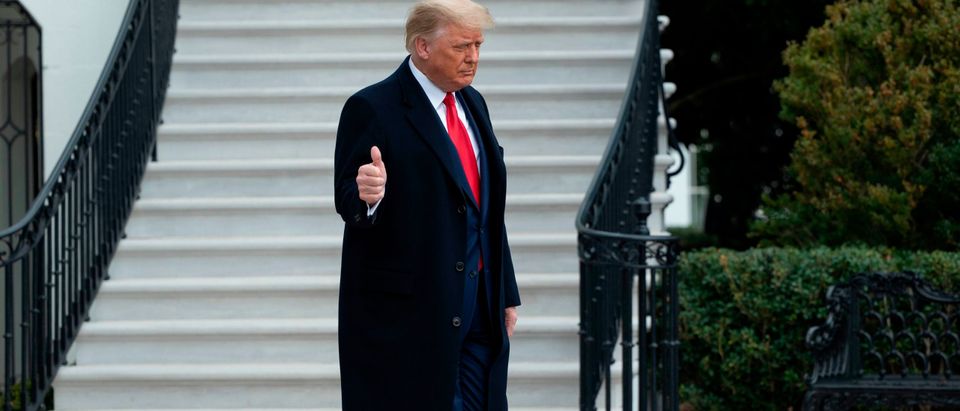On January 13, 2021, one week to the day after the nation’s Capitol was violently breached for the first time since the War of 1812, Donald J. Trump became the only president in American history to be impeached twice. The debate has now turned to when, and whether, his Senate trial should commence.
I believe Congress has done enough and that the voters should decide what happens next to Trump. I say this not because what President Trump was impeached for doing — fomenting an insurrection — should be forgiven. Rather, I say it because there is too much uncertainty surrounding a Senate trial.
For starters, Republicans and Democrats cannot even agree about whether it is possible to convene the trial before President-Elect Joe Biden is inaugurated at noon on Jan. 20. Senate Majority Leader Mitch McConnell says a trial cannot be convened without the unanimous consent of all 100 senators because the Senate is currently in a pro forma session and is not conducting regular business. Senate Minority Leader Chuck Schumer disagrees and insists that all that is required is for him and McConnell to agree to convene the trial because this is an emergency.
Disagreement also exists about the need for an immediate Senate trial. People who think there is a need maintain that, as House Speaker Nancy Pelosi put it during the House impeachment process, President Trump is a “clear and present danger” to the nation, and that requires his immediate removal and disqualification from office.
Others — including Trump himself — insist that the nation is witnessing the latest iteration of the “witch hunt” to which he has been subjected since the 2016 presidential election. Moreover, due process is at the heart of the American conception of justice and it is fundamentally unfair to expect Trump to prepare a defense in less than a week.
Further, what would be the point of the Senate trial? For better or worse, only one Republican senator, Mitt Romney, voted to convict President Trump the first time he was impeached and it is highly unlikely that seventeen Republican senators will vote to convict him the second time around.
Why put the nation through the trauma of another Senate impeachment trial if the outcome is a foregone conclusion, especially when it will interfere with President Joe Biden’s agenda, which includes but is not limited to, better managing the nation’s response to the COVID-19 pandemic than Trump did?
Also, who would preside over the second impeachment trial if it occurs, as McConnell has said it will occur, if at all, after Trump is no longer president?
The Constitution states that “When the President of the United States is tried, the chief justice shall preside.” But if Trump is no longer president at the time of the Senate trial, the provision does not seem to apply. And it is not merely the Constitution’s text that is in doubt; it is the most obvious rationale for the text: The vice president should not preside when the effect of a conviction would be to make the vice president the new president. Vice President Kamala Harris will not become president if Trump is convicted and barred from ever again holding public office. Should she preside rather than Chief Justice John Roberts?
The most obvious reason for not subjecting Trump to a second Senate trial is, however, the doubt that exists about whether a president can be tried in the Senate after he leaves office.
Many legal scholars, including former U.S. Court of Appeals Judge Michael Luttig, insist that a former president cannot be tried in the Senate because, as Luttig wrote in a recent Washington Post op-ed, the purpose of impeachment and removal from office is to protect the nation from potential harm by a corrupt politician who is currently holding office.
Trump will not be in office after noon on Jan. 20, a fact that even he finally seems to appreciate. The counter-argument is that there are a couple of Senate precedents that went the other way, although they are from a long time ago, they are few in number and none involved the president.
But the most important reason for not subjecting the soon-to-be ex-president to a second trial in the Senate is that it would deprive the American people of the right to decide his fate at the ballot box. The odds that Donald Trump could secure the Republican nomination for president in 2024, let alone win the general election, are about the same as the odds of me defeating LeBron James in a game of one-on-one basketball: zero.
After all, if President Trump could not win the 2020 election after presiding over a record-setting economy and four years of peace — and he did not win it, despite his assertions to the contrary — how can ex-President Trump win in 2024 when he has been impeached twice?
Scott Douglas Gerber is a law professor at Ohio Northern University and an associated scholar at Brown University’s Political Theory Project. His nine books include, most recently, “The Art of the Law: A Novel” (Anaphora Literary Press).


